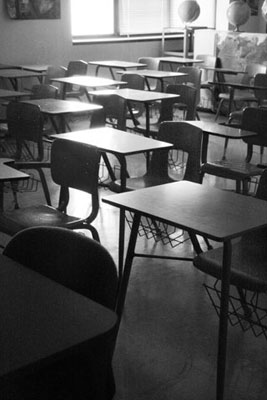All Nonfiction
- Bullying
- Books
- Academic
- Author Interviews
- Celebrity interviews
- College Articles
- College Essays
- Educator of the Year
- Heroes
- Interviews
- Memoir
- Personal Experience
- Sports
- Travel & Culture
All Opinions
- Bullying
- Current Events / Politics
- Discrimination
- Drugs / Alcohol / Smoking
- Entertainment / Celebrities
- Environment
- Love / Relationships
- Movies / Music / TV
- Pop Culture / Trends
- School / College
- Social Issues / Civics
- Spirituality / Religion
- Sports / Hobbies
All Hot Topics
- Bullying
- Community Service
- Environment
- Health
- Letters to the Editor
- Pride & Prejudice
- What Matters
- Back
Summer Guide
- Program Links
- Program Reviews
- Back
College Guide
- College Links
- College Reviews
- College Essays
- College Articles
- Back
A Better Way of Learning
Learning is like technology; if you do not continue to reinvent and update it students will fall behind. This means that the way schools teach needs to change, starting with a flipped classroom. A flipped classroom is an education technique where students learn the material outside the classroom through a video or reading and do homework inside of class. All teachers should use the flipped classroom at least 20% of the time.
A flipped classroom allows students to learn actively. "The idea is to use technology to make sure that the time in the classroom isn't spent on lecturing. Instead, the students can actually experience some of the stuff at home and then come into the classroom and have meaningful discussions with their teachers,” says Nick Glass, who is the founder and executive director of TeachingBooks (Springen). This allows teachers to create a more hands-on learning approach. Also, students learn more information in this setting. A study conducted at the University of Missouri found that 36.8% of the students that participated in the experiment claimed that the flipped classroom allowed them to learn more than they would in a traditional classroom (Stone). This happens because when students work at their own pace and apply information, they improve their understanding of the content by actively engaging in the material. Lastly, students can discuss what they study in groups. This allows classmates to share different ideas with one another. The article The Centre for Teaching Excellence states, “Each student will bring his or her own individual understanding of the content to the lesson, and together in small groups, they will be able to draw on each other’s knowledge to force new understanding and better recall the content” (“Centre”). If students discuss the content with one another, they can get a wide range of opinions that make their learning active. Something to consider.
Although the benefits of a flipped classroom outway any oppositions, many believe that students will not take the time the complete the lessons outside the classroom. While there will always be students who do not complete their homework this is not the case for all school aged children. In one survey of 453 teachers who flipped their classrooms, 67 percent reported increased test scores (Goodwin). If test scores are improving then students must be doing their work and benefit from this new teaching style.
This indicates that students are infact doing their work outside of school.
Teachers need to stop drowning their students in a sea of information and allow them to learn in a way that is effective. Using a flipped classroom at least 20% of the time enhances learning because it allows students to learn actively, ask more questions in class, and encourages them to do homework. Would you give up the opportunity to enhance education? Schools need to revamp teaching and integrate flipped classrooms into their curriculum.

Similar Articles
JOIN THE DISCUSSION
This article has 0 comments.
